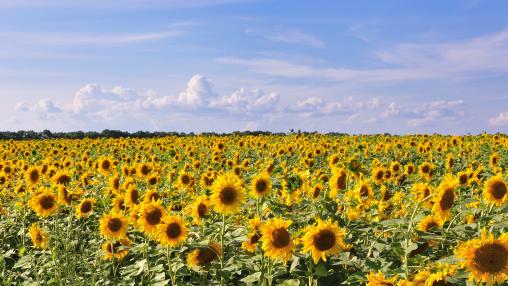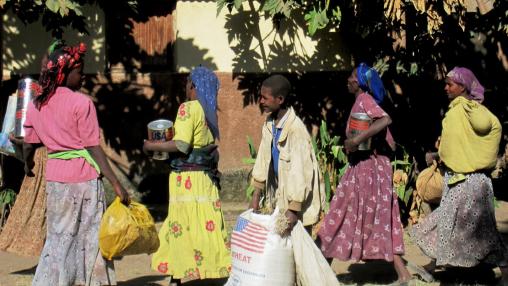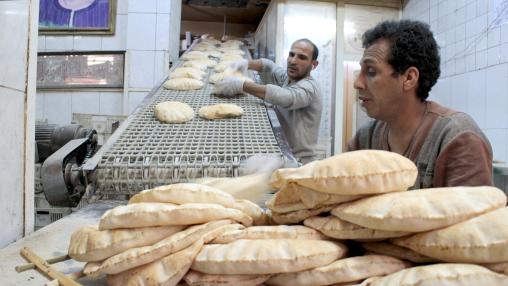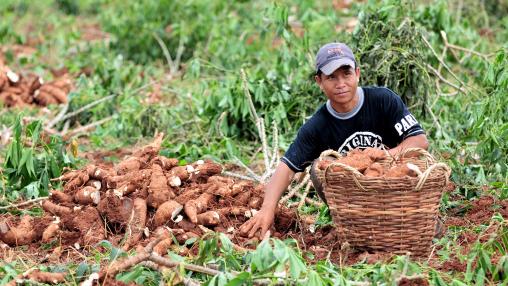
From bad to worse: How Russia-Ukraine war-related export restrictions exacerbate global food insecurity
Global turmoil and supply shocks can increase a country's vulnerability to food shortages. In the past, countries have often resorted to restrictive trade policies to address food supply disruptions. The Ukraine-Russia crisis is no exception; a number of countries have imposed export restrictions in various forms.
Fertilizer Availability and Affordability: Implications for agricultural productivity and food security
The invasion of Ukraine has driven up already high global agricultural commodity prices. Fertilizer prices have also reached all-time highs, casting a serious shadow on future harvests, and thus add to concerns about global food security.
Speakers will address the implications of increased prices on fertilizer demand, usage and productivity, the viability of government fertilizer subsidies and soil health.
This is the third event in an IFPRI seminar series on Food and Fertilizer Price Trends: Impacts on global food security.

The Russia-Ukraine war is exacerbating international food price volatility
The IFPRI Food Security Portal’s Excessive Food Price Variability Early Warning System is showing excessive levels of price volatility in the four major food commodities: Wheat, maize, rice, and soybeans, as well as for cotton. Markets for hard and soft wheat and soybeans had already been more volatile than normal since late 2021, well ahead of Russia’s invasion in Ukraine, which began on Feb. 24. That conflict, coming on top of the ongoing effects of the COVID-19 pandemic, has already contributed to spiking food prices, with possible major consequences for global food security.
Retail food prices at the country level and implications for food security
This policy seminar will explore what we know—and do not know—about how high global agricultural commodity prices and country-specific factors affect retail prices at the national level. Special attention will be given to countries suffering from acute food insecurity and those with a high dependence on imports.

The Russia-Ukraine crisis poses a serious food security threat for Egypt
Russia's invasion of Ukraine has imperiled global food security—creating suffering within Ukraine and displacing millions, while disrupting agricultural production and trade from one of the world's major exporting regions. The latter threatens to drive rising food prices still higher and create scarcity, especially for regions most dependent on exports from Russia and Ukraine—particularly the Middle East and North Africa.
Food for All: International Organizations and the Transformation of Agriculture
Global levels of food security and nutrition have declined significantly as a result of the COVID-19 pandemic, climate change, and conflict. Many developing countries are falling behind on achieving the Sustainable Development Goals, yet global ambitions to achieve sustainable food security and adequate nutrition have grown. What are the prospects of achieving sustainable, healthy food for all? How can we best respond to concerns about growing differences in domestic agricultural and industrial performance among developing countries?
COVID-19 & Global Food Security: 2 Years Later
This e-book builds upon the lessons presented in the earlier volume, COVID-19 & Global Food Security (2020) that documented the impacts of the COVID-19 pandemic as of mid-2020, particularly the disruptions to livelihoods and the food and nutrition security of billions of people. Early in the pandemic, many hoped that COVID-19 could be controlled and even eliminated through a short-term response phase and that attention could subsequently be shifted to recovery and resilience building.

The Impacts of COVID-19 on Farmers' Income and Food Security In The Globalized Cassava Value Chains In Cambodia and Vietnam
Scientists from the Alliance of Bioversity International and CIAT, led by Vanya Slavchevska, undertook a rapid study to gather evidence on the initial impacts of COVID-19 on cassava smallholders in Cambodia and Vietnam.
The research evaluates how smallholders coped with the economic consequences of COVID-19 in the short term, and whether livelihood diversification strategies mediated or exacerbated the impacts of the crisis.
The COVID-19 pandemic context
Empowering countries to monitor food security
The conference will present the importance and the main achievements of 10 years of collaboration between FAO and the European Union in supporting countries in the production of actionable, timely and reliable food security and nutrition data to guide policies and interventions.
Healthy Oceans Tech and Finance Forum: Innovative solutions for Asia and the Pacific
A virtual forum to explore relevant and impactful technology solutions, tools, and potential partners to support investments in ocean health.
Date: Wednesday-Friday, 26-28 January 2021
Time: 09:00-17:30 (UTC+8)
Click here to register to participate and watch the event online